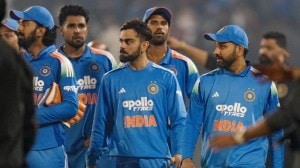The University Grants Commission (UGC) is expected to approve the regulations for setting up of 20 world-class institutions at its meeting scheduled on February 22, said sources. If approved, the regulation — titled ‘ UGC (Institutions of Eminence Deemed to be Universities) Regulation 2017 — will be the first move in the direction of pruning the Commission’s authority. The NDA-II government is planning to restructure UGC, which could include dilution of some of its existing powers and greater autonomy for recognised institutions. The Indian Express has learnt that funds meant for the 10 government institutions recognised under this programme will be released directly by the HRD Ministry and not through UGC.
Watch what else is making news:

The ministry has moved an Expenditure Finance Committee note seeking Rs 10,000 crore over five years to help 10 public educational institutions become ‘Institutions of Eminence’. As per the government’s initial proposal, UGC was meant to disburse this money, but the HRD Ministry has agreed to release funds directly on recommendation of the Integrated Finance Division.
UGC’s main job description is to maintain standards of higher education, provide recognition to universities/deemed universities and disburse funds to such institutions. The ‘Institutions of Eminence’ will be set up as a separate category of deemed universities. The proposed regulations aim at creating an enabling architecture for 10 public and 10 private institutions to emerge as world-class institutions since the country has little representation in the international ranking of educational institutions.
The Institutions of Eminence will have a greater degree of autonomy compared to other higher education institutions. For instance, they will be free to decide their fee for domestic and foreign students and have a flexible course duration and structure. Their academic collaborations with foreign institutions will be exempt from approvals of government or UGC except in case of institutions based in MEA and MHA’s list of negative countries.
Once identified, the target for the ‘Institutions for Eminence’ would be to break into the top 500 bracket in one internationally reputed ranking framework in 10 years and come up in the top 100 over time.
The draft regulations were made public in June last year for feedback, based on which the HRD Ministry has made the following changes:
Story continues below this ad
* The financial support to each of the 10 public institutions has been hiked from Rs 500 crore to Rs 1,000 crore
* The ministry has brought down the collective net worth of the sponsoring society of the private institution of eminence to Rs 5,000 crore for greenfield institutions and Rs 3,000 for exiting private institutions with at least one member having net worth of Rs 1,000 crore.
* It was originally proposed that a private institute must have a corpus of Rs 200 crore to be eligible to be declared a world-class institute. This has been brought down to Rs 60 crore.
































